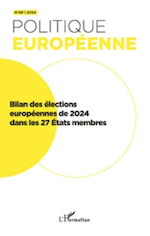 | Les élections européennes en Belgique Un scrutin de troisième ordre Par Nathalie Brack, Samuel Defacqz, Thomas Laloux et Virginie Van Ingelgom |
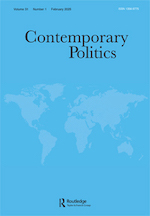 | First survive, then thrive: major urban centres and resistance against autocratisation By Luca Tomini, Giulia Sandri, Adam Szymański |
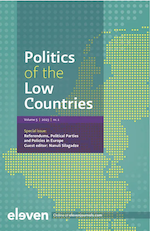 | From Divergence to Convergence: Degrees of Formality in the Connections Between Two Flemish Progressive Political Parties and Organised Civil Society By Nick Martin |
 | Towards a Polarised Electorate? How Polarisation Affects Turnout Decisions in the Belgian Context of Compulsory Voting By Bjarn Eck and Elie Michel |
 | Introduction By Jean-Michel De Waele & Luiz Guilherme Burlamaqui |
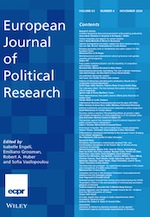 | Are poor people poorly heard? By Julie Sevenans, Awenig Marié, Christian Breunig, Stefaan Walgrave, Karolin Soontjens, Rens Vliegenthart |
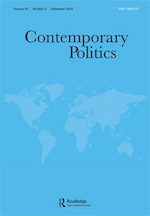 | Local democratic resistance to autocratisation: evidence from Budapest, Banja Luka, and Zagreb By Guido Panzano, Simone Benazzo & Venelin Bochev |
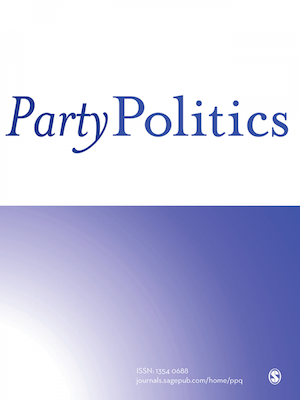 | To rule or not to rule? An experimental study of the electoral ramifications of claims to (not) rule with radical right populist parties By Laura Jacobs & Jean-Benoit Pilet |
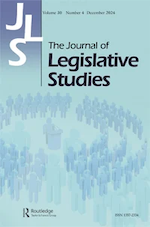 | Unity in adversity: has the grand coalition survived fragmentation and COVID-19 in the 9th European Parliament? By Nathalie Brack, Awenig Marié et Olivier Costa |
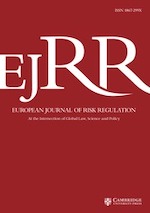 | EU Regulatory Polity 3.0 for Compliance with the Rule of Law: When Depoliticising Goals Lead to Uneven Politicisation By Ramona Coman and Leonardo Puleo |
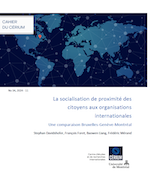 | La socialisation de proximité des citoyens aux organisations internationales : Une comparaison Bruxelles-Genève-Montréal Par François Foret en collaboration avec Stephan Davidshoger, Baowen Liang, et Frédéric Mérand |
 | Politicians’ Theories of Voting Behavior By Nathalie Brack and Jean-Benoit Pilet in collaboration with Jack Lucas, Lior Sheffer, and other colleagues |
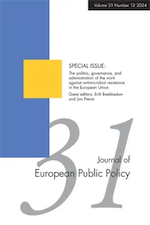 | Far-right contentious politics in times of crisis: between adaptation and transformation By Pietro Castelli Gattinara, Andrea L. P. Pirro and Caterina Froio |
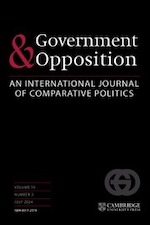 | The Far Right Out of Its Comfort Zone? Framing Opposition to Immigration during COVID-19 in Italy By Pietro Castelli Gattinara and Raffaele Bazurli |
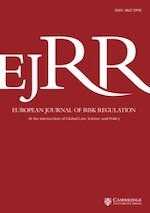 | EU Regulatory Polity 3.0 for Compliance with the Rule of Law: When Depoliticising Goals Lead to Uneven Politicisation By Ramona Coman and Leonardo Puleo |
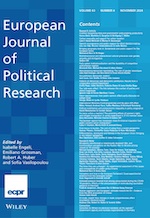 | As you wish? Public preferences for models of representation and MPs’ role orientations By Nathalie Brack in collaboration with Philippe Mongrain and Nino Junius |
 | Between Decline and Distress Innovations: The Transformation of the Belgian French-Speaking Christian-democratic Party (cdH) By Sacha Rangoni in collaboration with Thomas Legein |
 | Opposition and resistance: how judges and professional associations in Poland, Hungary, and Romania defend their independence By Ramona Coman with Leonardo Puleo |
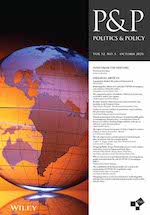 | Resilient austerity? National economic discourses before the pandemic in the European Union By Tiago Moreira Ramalho, Tom Massart and Amandine Crespy |
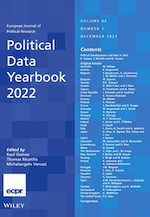 | Belgium: Political Developments and Data in 2023 By Audrey Vandeleene co-authored with Pierre Baudewyns, Lieven De Winter, and Serge Deruette |
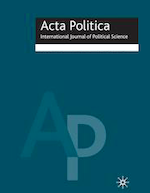 | Favoring ingroups, derogating from outgroups: how populist parties in Belgium polarize on social media By Lucas Kins, Laura Jacobs and Caroline Close |
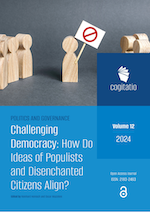 | The Preferred Governing Actors of Populist Supporters: Survey Evidence From Eight European Countries By Jean-Benoit Pilet, Davide Vittori, Emilien Paulis, Sebastien Rojon |
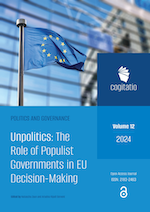 | Backsliding Populist Governments in the Council: The Case of the Hungarian Fidesz By Ramona Coman |
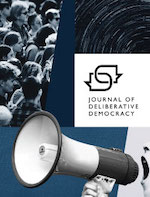 | Fair Enough? Mini-Public Composition and Outcome Acceptance from the Maxi Public By Emilien Paulis, Jean-Benoit Pilet, Sébastien Rojon and Davide Vittori |
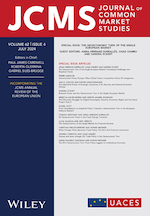 | The European Union's Response to the Rule of Law Crisis and the Making of the New Conditionality Regime By Ramona Coman |
 | From fringe to front? Assessing the voting influence of the radical right in the European Parliament By Nathalie Brack and Awenig Marié |
 | Resilient austerity? National economic discourses before the pandemic in the European Union By Tiago Moreira Ramalho, Tom Massart, Amandine Crespy |
 | How does the EU seek to encourage change in national justice systems? A framework of coordinative and coercive Europeanization at work By Ramona Coman |
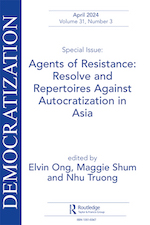 | Alternative patterns to electoral autocracy: recognizing diversity in contemporary autocratization processes By Luca Tomini with Claudio Balderacchi |
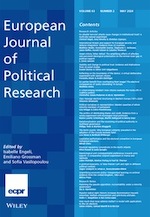 | Comparing political participation profiles in four Western European countries Par Sébastien Rojon, Davide Vittori and Emilien Paulis with Paulina Pankowska |
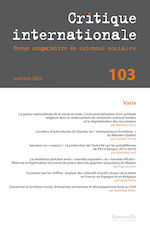 | Contester par les chiffres : analyse des collectifs d’audit citoyen de la dette en France, en Espagne et en Belgique Par Jessy Bailly |
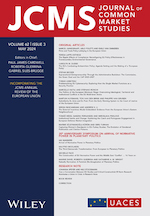 | The EU’s Transactional Approach to Rule of Law Spending Conditionality in the 2020s Par Pauline Thinus |
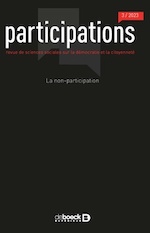 | L’imaginaire démocratique des élu·es et des gouvernant·es à l’épreuve d’une citoyenneté politique augmentée Par Jessy Bailly |
 | Distinction within the ‘global north’? A Bourdieusian approach for analysing development discourse: The case of U.S. and E.U. relations with the Colombian state (2016–2022): A comparative analysis By Hugo Corten |
 | During the past few decades, Latin American governments’ recurrent attacks against journalists have contributed to the erosion of press freedom in the region and, relatedly, of the quality of democracy. Yet what pushes governments to harass journalists? W By Jean-Benoit Pilet, Camille Bedock, David Talukder & Sacha Rangoni |
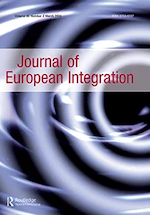 | Embedding past, present and future crises: time and the political construction of the Covid-19 pandemic in the EU By Amandine Crespy, Tom Massart, Tiago Moreira Ramalho |
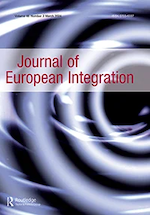 | How ‘European sovereignty’ became mainstream: the geopoliticisation of the EU’s ’sovereign turn’ by pro-EU executive actors By Alvaro Oleart and Juan Roch |
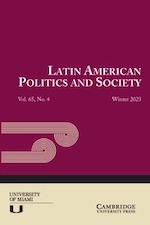 | Shut Up! Governments’ Popular Support and Journalist Harassment: Evidence from Latin America By Luca Tomini, Andrea Cassani, Claudio Balderacchi |
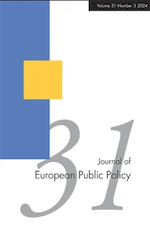 | Beyond ‘responsibility vs. responsiveness’: reconfigurations of EU economic governance in response to crises By Amandine Crespy, Tiago Moreira Ramalho and Vivien Schmidt |
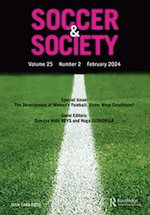 | Kicking off passion: the birth and rise of football in Belgium (1880-1914) Par Pascal Delwit |
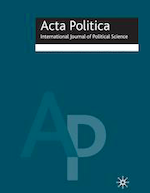 | National or partisan representation: do politicians’ perceptions of the opinions of these voter groups depend on party characteristics? Par Awenig Marié |
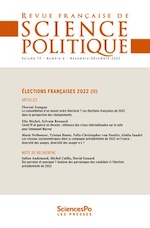 | COVID-19 et guerre en Ukraine Influence des crises internationales sur le vote pour Emmanuel Macron Par Elie Michel avec Sylvain Brouard |
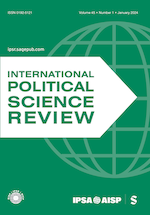 | The angry voter? The role of emotions in voting for the radical left and right at the 2019 Belgian elections By Laura Jacobs, Jean-Benoit Pilet & Caroline Close |
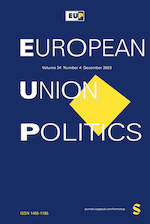 | Unequal perspectives? Income inequality as a benchmark for support for European integration By Bjarn Eck in collaboration with Sven Schreurs |
